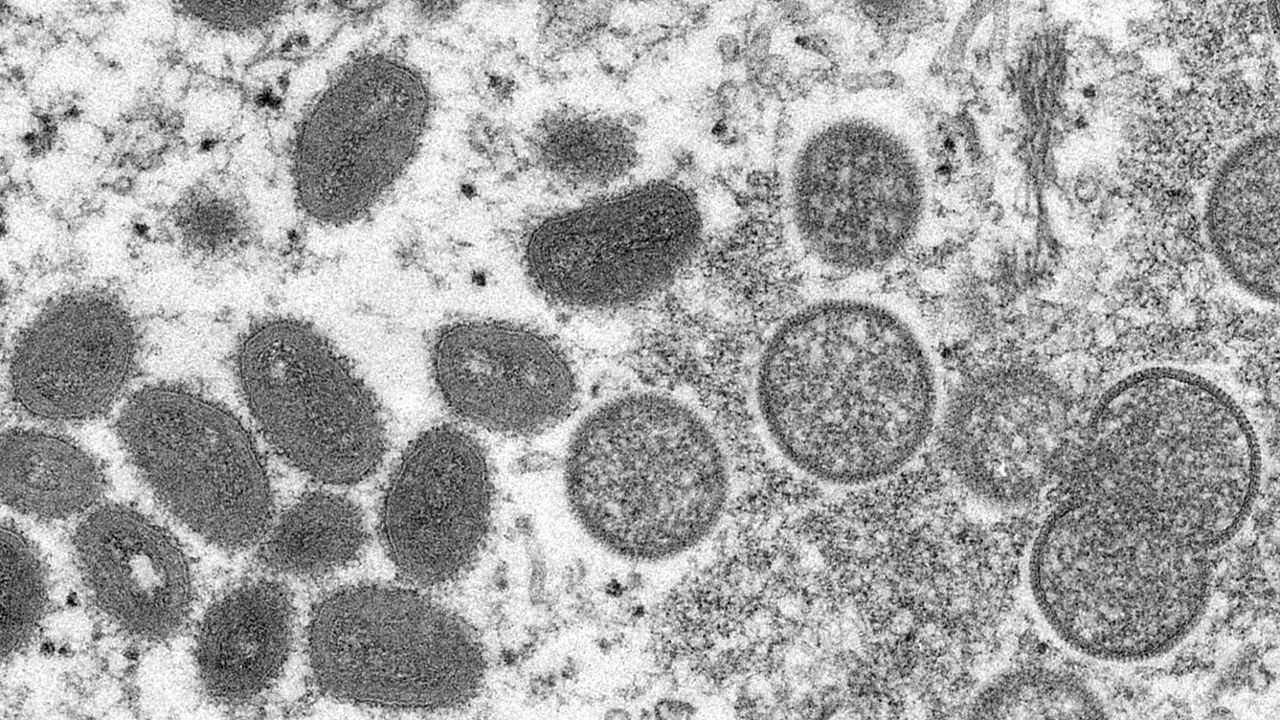The number of monkeypox cases in the United States has more than doubled over the past week, federal health officials said Friday, as they urged Americans to be on the lookout for symptoms of the disease.
What You Need To Know
- Federal health officials said Friday there have been 45 confirmed cases of monkeypox across 15 states and Washington, D.C., up from 21 cases in 11 states a week ago
- Globally, monkeypox cases are up 72% over the past week, to 1,356 across 31 countries
- There have been no deaths associated with the outbreak, officials said
- Health officials are trying to educate Americans more about the virus, including its symptoms and how it spreads
During a call with reporters, officials said there have been 45 confirmed cases across 15 states and Washington, D.C., during the outbreak. That is up from 21 cases in 11 states a week ago.
New York (11), California (eight), Florida (five) and Illinois (four) have accounted for the most cases, while Arizona, Colorado, the District of Columbia, Georgia, Hawaii, Massachusetts, Pennsylvania, Rhode Island, Texas, Utah, Virginia and Washington also have seen infections.
Globally, monkeypox cases are up 72% over the past week, to 1,356 across 31 countries. The United Kingdom, Spain and Portugal have the most reported cases.
There have been no deaths associated with the outbreak, officials said.
Health officials are trying to educate Americans more about the virus, including its symptoms and how it spreads.
CDC Director Dr. Rochelle Walensky said monkeypox can spread through direct contact with the bodily fluids or sores from someone who has been infected. She said it also can spread through respiratory secretions when people have close face-to-face contact, but she stressed it’s not typically transmitted during short periods of shared airspace, such as casual conversations or shopping.
“What we do know is that those diagnosed with monkeypox in this current outbreak described close, sustained physical contact with other people who were infected with the virus,” Walensky said.
Last week, federal health officials said most of the U.S. cases involved men who identify as having sex with other men. About three-quarters of cases also involve people who recently traveled internationally, officials said Friday.
Walensky said symptoms during the current outbreak have been mild and that lesions sometimes have been limited to certain areas of the body, which differs from cases often seen in Africa, where monkeypox is endemic.
The disease typically begins with flu-like symptoms — fever, headache, muscle aches and exhaustion — followed by lesions, which can result in long-term scarring of the skin. But Walensky said some patients in the outbreak have not developed any flu-like symptoms.
“I also want to stress that anyone who has symptoms of monkeypox, such as rashes or lesions, which may appear as pimples or blisters, should talk to their health care provider,” Walensky said.
The CDC director said the overall risk for people in the U.S. to be infected with the virus is low. Officials said there is no evidence of monkeypox spreading through American communities, but they’re continuing to closely monitor contact tracing.
The CDC has posted more information about symptoms, including photos, on its website.
Health officials say the U.S. has enough vaccine and antiviral treatment available to manage the outbreak. They recommend vaccines for individuals deemed high-risk contacts of infected people.
Dr. Raj Panjabi, the White House’s senior director for global health security and biodefense, said the federal government has delivered more than 1,400 vaccine doses and 110 treatment courses to affected state and local jurisdictions to date.
More than 300 PCR tests have been performed, a 45% increase from the previous week, and the U.S. has the capacity to significantly ramp up testing.
“But testing can only happen when people with symptoms seek care, and that's why we're speaking to community leaders, health care providers and, you, the media to educate the American public on monkeypox,” Panjabi said.



